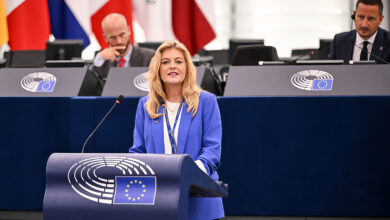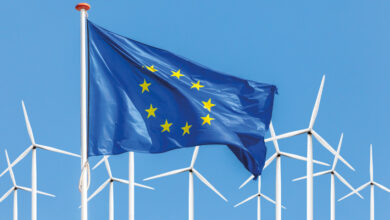Delivering the next generation of communication technology
The EU and Brazil have signed an agreement to cooperate in the development 5G networks.
 The EU and Brazil have signed an agreement to develop 5G, the next generation of communication networks. The Commission has also started work on an action plan to deploy the technology in the EU by 2020.
The EU and Brazil have signed an agreement to develop 5G, the next generation of communication networks. The Commission has also started work on an action plan to deploy the technology in the EU by 2020.
In the future, everybody and everything will use 5G. By 2020, there will be 26 billion connected devices and 70 per cent of people will own a smartphone. 5G will be the backbone of the EU Digital Single Market, industries of the future, modern public services and innovative applications such as connected cars, smart homes or mobile health services. To face this global challenge and to ensure it is prepared for a fast and effective roll-out of the next-generation communication technology, the EU has joined forces with Brazil to strengthen cooperation in this strategic area and to make sure that 5G does not develop in silos at the international level. The EU and Brazil, which are close trading partners, have been cooperating on information and communication technologies since 2008.
The EU and Brazil have committed to developing a global definition of 5G and to identifying the services (for example connected cars, the Internet of Things or very high-definition video streaming) which should be the first delivered by 5G networks. The two partners will also work to define common standards in order to have a stronger position on the global stage. They will cooperate in identifying the most promising radio frequencies to meet the additional spectrum requirements for 5G, especially in the framework of the International Telecommunication Union (ITU).
In addition, they will promote the deployment of 5G in fields like smart cities, agri-food, education, health, transport and energy as well as possibilities for joint research projects in this area. Cooperation agreements are also being discussed with India and the United States of America.
The EU’s Horizon 2020 research and innovation programme will set up joint projects on 5G and also facilitate policy coordination in related areas between the EU and Brazil. In December 2013, the Commission launched a Public-Private Partnership on 5G and by 2020, the EU will have invested €700 million in this partnership. It is expected that industries across the EU will contribute more than five times this much to project investing over €3 billion in it.
The Commission has also presented a proposal to coordinate the use of the 700 MHz band for mobile services. Mobile operators using the 700 MHz band will be able to offer higher-speed and higher-quality broadband (i.e. without service interruption) to consumers and cover wider areas, including rural and remote regions. It will enable Europe to move ahead and provide mobile broadband speeds beyond 100 Mb/s and catch up with leading regions in 4G mobile broadband take-up.
As soon as specific 5G standards and associated technology and equipment are available the Commission is confident mobile operators will be in a good position to roll out the service. Further steps to coordinate spectrum in the EU will be part of the forthcoming review of EU telecoms rules which is expected to be published this autumn.





